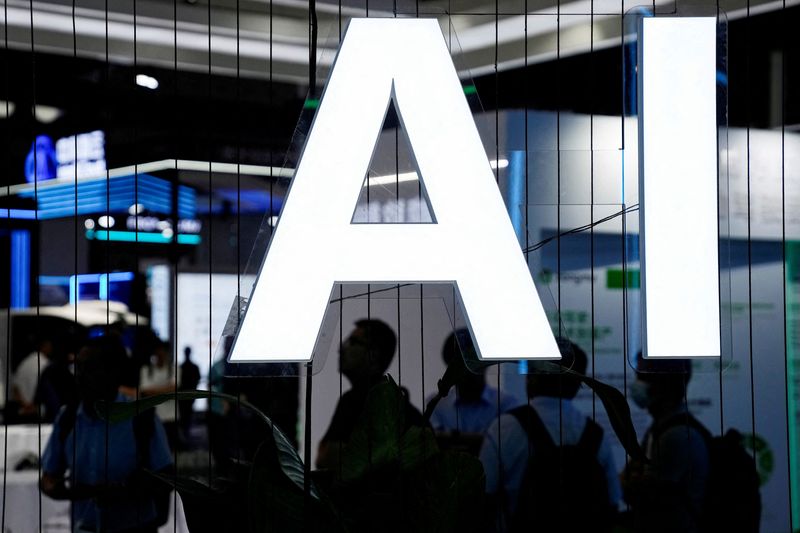Investing.com — Donald Trump’s expected second term could redefine the trajectory of the AI space in the United States.
While there was strong continuity between Trump’s AI policies during his first term and Joe Biden’s term, the former president’s rapport with tech executives, regulatory criticism and a tougher stance on China indicate “ indicate that a change in approach is imminent,” said Deutsche Bank (ETR:) analysts.
With rapid developments in generative AI over the past two years, Deutsche Bank highlights five key shifts expected under Trump’s leadership.
1)’Technology leaders are in the room where it’s happeningTrump’s close ties to Silicon Valley giants like Elon Musk and venture capital leaders signal a new openness to the industry’s perspectives.
Musk, a major donor to the Trump campaign, will now lead a government department focused on efficiency, giving him a major role in shaping technology policy.
The president’s vice presidential pick, JD (NASDAQ:) Vance, also shares strong ties to technology and is the co-founder of Narya Capital with prominent tech financiers.
During his appearance on the ‘All-In’ podcast hosted by venture capitalists David Sacks and Chamath Palihapitiya, Trump said his policies would “boost Silicon Valley by deregulating cryptocurrency, expanding access to visas for highly skilled workers and to push for energy independence to remain competitive. in AI,” Deutsche analysts note.
2)’Safety is placed lower on the agendaTrump’s approach signals a reversal in Biden’s AI security initiatives, with a promise to revoke Biden’s Executive Order on AI, which imposes stricter security measures on developers.
Trump’s AI policy will likely favor “small tech” startups, with the aim of reducing regulatory burden. According to Deutsche Bank, this could cement the US as the top destination for tech companies, in contrast to the European Union’s comprehensive AI regulations.
3)’Regulators are becoming more AI technology-friendlyThe Trump administration is expected to take a more hands-off approach to antitrust enforcement, especially against tech giants, according to Deutsche Bank analysts.
The former president has previously expressed reluctance to break up major companies such as Alphabet’s (NASDAQ:) Google, choosing instead to “make sure it’s fairer” rather than dismantle it.
With Republican control of Congress, his administration can appoint pro-business officials at the Federal Trade Commission (FTC) and Department of Justice (DoJ), potentially loosening controls on technology mergers and easing regulatory pressure on the industry .
Still, both regulators have “a busy docket of technology-related litigation that they are unlikely to abandon,” analysts warn.
“For example, the DoJ said last month that it is considering a possible breakup of Alphabet’s Google to end its search monopoly, and the FTC is suing Meta (NASDAQ) and Amazon (NASDAQ:) for alleged monopolistic behavior,” they pointed out .
4)’Domestic chipmakers are given preferenceTrump’s vision for chip production prioritizes domestic production, especially to counter Taiwan’s dominance in the production of advanced AI chips.
He has criticized Taiwan’s heavy involvement, which he views as a security risk. Trump’s position suggests that US-based companies like Intel (NASDAQ:) could receive more government support, with possible tariffs and trade restrictions on Chinese imports.
Tariffs on goods from China could reach 60%, affecting vital technical components such as gallium and germanium, minerals crucial to chip production that China largely controls.
5)’Safety is higher on the agenda:’ National security remains a central pillar of Trump’s AI strategy, especially in relations with China.
His administration is likely to expand and intensify Biden’s export controls, preventing Chinese access to advanced AI technologies and semiconductors. Trump’s previous actions, such as placing Huawei on the US Entity List, underscore his position on limiting China’s influence in sensitive technology areas.
“Continued American leadership in AI is paramount to maintaining the economic and national security of the United States,” Trump said in his first executive order.


